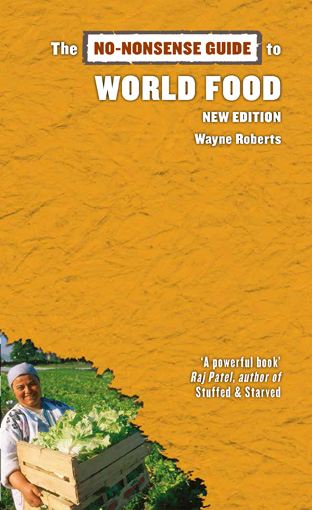With municipal elections happening across Ontario on October 27, it is once again time to reflect on the importance of municipal politics and policy to regional food systems transformation.
Results are in from the province-wide Vote ON Food & Farming municipal election campaign, coordinated by Sustain Ontario:
(Guelph-Wellington Food Round Table)
More than 1/3 of the responses province-wide came from 75 candidates in Guelph and Wellington municipalities! This included surveys from 14 mayoral candidates, 43 councillors and 18 trustees — and, as mentioned in our letters to the Guelph Mercury and Wellington Advertiser, thoughtful responses from many, and near-unanimous support for a Regional Food Strategy.
Read more…
(Thunder Bay Food Strategy)
Municipalities make a range of decisions that influence people’s ability to access food, the viability of food and farming businesses, and the environmental impacts of our food system. The Thunder Bay and Area Food Strategy sent 3 questions to candidates in the upcoming municipal elections, seeking their commitment to improving access to healthy food for all, protecting food producing areas, and supporting food and farm businesses.
Read more…
(Ottawa Food Policy Council)
There is a growing shift towards Good Food For All in our schools, in our hospitals, in our food banks, in our grocery stores, in our neighbourhoods and in our rural and urban communities. Food is a central part of the health and well-being of our communities.
What is Good Food?
Fresh; culturally relevant; accessible; minimally-processed; affordable; as local as possible.
Read more…
More from Vote on Food and Farming
We believe that resilient food systems can meet many important policy objectives beyond simple food production — economic (e.g. good jobs and economic growth), environmental (e.g. soil health and clean water) and social (e.g. food access and food literacy). The process of building these systems can also lead to greater community development and engagement, as it requires enhanced collaboration by many different actors — government, industry, academia, civil society groups and citizens.
Read more…
…People understood about the connection between food and collaboration from the earliest days of cities. Think of words such as companion, company and companero. They come from the Latin combination of with (com) and pane (bread). Even the word “trivia”, my favourite, comes from the fact that early farmers markets were set up at the intersection of three (tri) roads (via). And when people got together, they were so excited and chatty, they talked about what authorities considered trivia, but was probably just a put-down of popular collaboration.
Read more…

